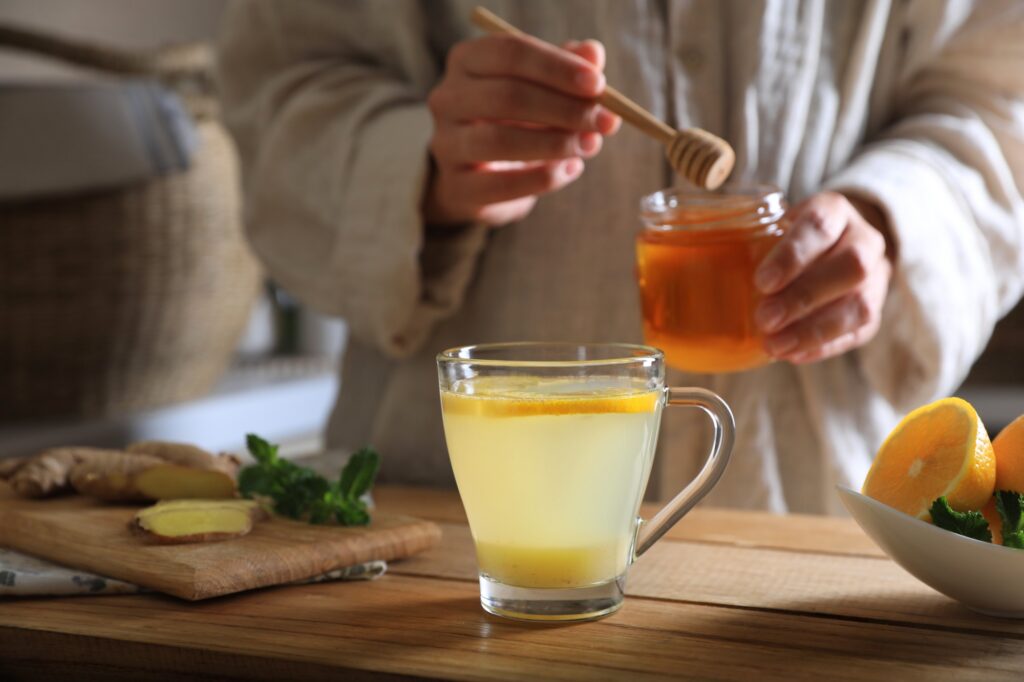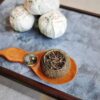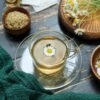
As the seasons change and the weather turns colder, many of us find ourselves battling the dreaded cold and flu symptoms. From persistent sniffles and sore throats to body aches and fatigue, these seasonal illnesses can leave us feeling miserable and longing for relief. However, there is a natural solution that has been used for centuries to alleviate these symptoms: home remedy tea.
Home remedy tea is a time-honored tradition that utilizes a variety of herbs, spices, and natural ingredients to support the body’s natural defenses and provide soothing relief. These teas are not only effective in combating cold and flu symptoms, but they also offer a host of additional health benefits. In this comprehensive guide, we’ll explore the power of home remedy tea and how it can help you navigate the seasonal sniffles with ease.
Benefits of Using Home Remedy Tea for Cold and Flu
Home remedy tea for cold and flu offers a wide range of benefits that make it a valuable addition to your wellness arsenal. Some of the key advantages of incorporating these teas into your routine include:
- Natural Immune Support: Many of the ingredients commonly used in home remedy teas, such as ginger, turmeric, and echinacea, are known for their immune-boosting properties. These natural compounds can help strengthen the body’s defenses and support the recovery process.
- Symptom Relief: Home remedy teas can provide targeted relief for a variety of cold and flu symptoms, including congestion, sore throat, cough, and fever. The soothing and anti-inflammatory properties of these teas can help alleviate discomfort and promote healing.
- Hydration and Nourishment: Drinking warm, nourishing teas can help keep you hydrated, which is essential for maintaining optimal health during illness. Many home remedy teas also contain vitamins, minerals, and antioxidants that can support overall well-being.
- Stress Reduction: The ritual of brewing and sipping a comforting cup of home remedy tea can have a calming effect on the mind and body, helping to reduce stress and promote relaxation – both of which are important for supporting the immune system.
- Versatility: Home remedy teas can be customized to suit individual preferences and needs, allowing you to tailor the blend to your specific symptoms and health goals.
By incorporating home remedy teas into your self-care routine, you can harness the power of nature to support your body’s natural healing processes and find relief from the disruptive effects of cold and flu.
Traditional Herbs and Ingredients Used in Home Remedy Tea
Home remedy teas for cold and flu often feature a blend of traditional herbs, spices, and natural ingredients that have been used for centuries to support respiratory health and immune function. Some of the most commonly used ingredients include:
- Ginger: Known for its anti-inflammatory and antiviral properties, ginger can help alleviate congestion, soothe sore throats, and boost the immune system.
- Turmeric: This vibrant spice contains curcumin, a powerful antioxidant that can help reduce inflammation and support the body’s natural defenses.
- Honey: Honey is a natural cough suppressant and has antimicrobial properties that can help soothe the throat and provide relief from respiratory symptoms.
- Lemon: The vitamin C and citric acid in lemon can help boost the immune system and provide a refreshing, cleansing flavor to home remedy teas.
- Echinacea: This herb is renowned for its ability to stimulate the immune system and support the body’s natural response to illness.
- Elderberry: Rich in antioxidants and immune-boosting compounds, elderberry has been used for centuries to alleviate cold and flu symptoms.
- Peppermint: The menthol in peppermint can help clear nasal congestion and provide a soothing, cooling sensation to the throat.
- Cinnamon: This warming spice has anti-inflammatory and antimicrobial properties that can help support respiratory health and fight off infections.
By combining these and other potent natural ingredients, home remedy teas can offer a comprehensive approach to addressing the symptoms of cold and flu, while also supporting overall well-being.
Recipes for Home Remedy Tea for Cold and Flu
Here are some delicious and effective home remedy tea recipes to help you fight the seasonal sniffles:
Ginger and Honey Tea
- 1-inch piece of fresh ginger, peeled and sliced
- 1 tablespoon of honey
- Juice of 1/2 lemon
- 1 cup of hot water
Combine the ginger, honey, and lemon juice in a mug. Pour the hot water over the ingredients and let steep for 5-10 minutes. Strain and enjoy.
Turmeric and Cinnamon Tea
- 1 teaspoon of ground turmeric
- 1/2 teaspoon of ground cinnamon
- 1 tablespoon of honey
- 1 cup of hot water
Mix the turmeric and cinnamon in a mug, then add the honey and hot water. Stir well and let steep for 5-10 minutes before drinking.
Elderberry and Echinacea Tea
- 1 tablespoon of dried elderberries
- 1 teaspoon of dried echinacea root
- 1 cup of hot water
- 1 tablespoon of honey (optional)
In a teapot or mug, combine the elderberries and echinacea. Pour the hot water over the ingredients and let steep for 10-15 minutes. Strain and add honey to taste, if desired.
Peppermint and Lemon Tea
- 1 tablespoon of fresh peppermint leaves
- Juice of 1/2 lemon
- 1 cup of hot water
- 1 tablespoon of honey (optional)
Place the peppermint leaves in a mug and pour the hot water over them. Let steep for 5-7 minutes, then strain and add the lemon juice. Sweeten with honey, if desired.
Remember, these recipes can be adjusted to suit your personal preferences and the specific symptoms you’re experiencing. Experiment with different combinations of herbs and spices to find the perfect home remedy tea for your needs.
How to Brew and Prepare Home Remedy Tea
Brewing the perfect cup of home remedy tea is an art form, and there are a few key steps to ensure you get the most out of your natural ingredients:
- Choose High-Quality Ingredients: Start with the freshest, highest-quality herbs, spices, and other natural ingredients you can find. This will ensure maximum potency and flavor.
- Measure Carefully: Follow the recipe proportions closely to achieve the right balance of flavors and benefits. Adjust the amounts to suit your personal taste preferences.
- Use Freshly Boiled Water: Bring cold water to a full boil before pouring it over your tea ingredients. This helps to extract the maximum amount of beneficial compounds.
- Steep for the Proper Time: Allow the tea to steep for the recommended time, usually between 5-15 minutes, to allow the flavors and medicinal properties to fully infuse into the water.
- Strain and Serve: Use a fine-mesh strainer or tea infuser to remove the solid ingredients, leaving you with a clear, flavorful tea.
- Customize with Sweeteners: If desired, you can add a touch of honey, maple syrup, or another natural sweetener to balance the flavors.
- Enjoy Warm: Home remedy teas are best enjoyed hot, as the warmth can help soothe sore throats and provide additional respiratory benefits.
By following these simple steps, you can brew a delicious and therapeutic cup of home remedy tea that will help you find relief from cold and flu symptoms.
Additional Natural Solutions to Fight Cold and Flu Symptoms
While home remedy teas are a powerful tool in the fight against cold and flu, they can be even more effective when combined with other natural solutions. Consider incorporating the following complementary strategies into your self-care routine:
- Hydration: Staying well-hydrated is crucial for supporting the immune system and flushing out toxins. Drink plenty of water, broths, and herbal teas throughout the day.
- Rest and Relaxation: Allow your body to rest and recover by getting enough sleep and taking breaks from strenuous activities. Stress can weaken the immune system, so make time for relaxation and stress-reducing practices.
- Gargling with Salt Water: Gargling with warm salt water can help soothe a sore throat and reduce inflammation in the upper respiratory tract.
- Nasal Irrigation: Using a neti pot or saline nasal spray can help thin out mucus and flush out irritants, providing relief from nasal congestion.
- Herbal Supplements: Certain herbal supplements, such as echinacea, elderberry, and astragalus, can provide additional immune-boosting support when used in conjunction with home remedy teas.
- Dietary Changes: Focusing on a nutrient-dense diet rich in fruits, vegetables, and whole grains can help strengthen the immune system and support the body’s natural healing processes.
By incorporating these complementary strategies, you can create a comprehensive natural approach to managing cold and flu symptoms and supporting your overall well-being.
Precautions and Considerations
While home remedy teas are generally safe and effective, it’s important to be mindful of a few precautions and considerations:
- Allergies and Sensitivities: Some of the ingredients commonly used in home remedy teas, such as ginger, honey, or certain herbs, may cause allergic reactions or sensitivities in some individuals. It’s important to be aware of any known allergies or sensitivities and to start with small amounts when trying a new recipe.
- Interactions with Medications: Certain herbs and spices used in home remedy teas may interact with prescription or over-the-counter medications. Consult with a healthcare professional, especially if you are taking any medications, to ensure the safety and effectiveness of your home remedy tea.
- Pregnancy and Breastfeeding: Some herbs and spices used in home remedy teas may not be suitable for pregnant or breastfeeding women. It’s best to consult with a healthcare provider before consuming home remedy teas during these stages of life.
- Chronic Conditions: Individuals with chronic health conditions, such as diabetes, heart disease, or kidney problems, should exercise caution when using home remedy teas and consult with their healthcare provider for guidance.
- Moderation: While home remedy teas are generally safe, it’s important to consume them in moderation and not to replace essential medical treatment or medications with these natural remedies.
By being mindful of these precautions and considerations, you can safely and effectively incorporate home remedy teas into your self-care routine to support your health and well-being during cold and flu season.
Frequently Asked Questions
Q: How quickly can I expect to see results from drinking home remedy tea for cold and flu? A: The timeline for experiencing relief can vary, as it depends on the severity of your symptoms, the specific ingredients in the tea, and your body’s individual response. Many people report feeling some improvement in their symptoms within the first 24-48 hours of regularly drinking home remedy teas. However, it’s important to be patient and allow the natural remedies time to work their magic.
Q: Can I drink home remedy tea while taking over-the-counter or prescription medications? A: It’s generally safe to drink home remedy teas while taking medications, but it’s always best to consult with a healthcare professional first. Some herbs and spices used in these teas may interact with certain medications, so it’s important to be aware of any potential conflicts.
Q: How often should I drink home remedy tea for cold and flu? A: The frequency of consumption will depend on the severity of your symptoms and the specific recipe you’re using. As a general guideline, it’s recommended to drink 1-3 cups of home remedy tea per day, or as needed, to provide relief and support your body’s natural healing process.
Q: Can I use dried herbs and spices in place of fresh ingredients? A: Yes, you can absolutely use dried herbs and spices in your home remedy tea recipes. The dried versions may be more convenient and have a longer shelf life. However, keep in mind that fresh ingredients may provide a more potent flavor and aroma, as well as potentially higher concentrations of beneficial compounds.
Q: Are there any side effects or risks associated with drinking home remedy tea for cold and flu? A: Home remedy teas are generally safe when consumed in moderation and without any known allergies or sensitivities to the ingredients. However, as with any natural remedy, it’s important to be aware of potential interactions with medications or underlying health conditions. If you experience any adverse reactions, discontinue use and consult with a healthcare professional.To start your journey to natural cold and flu relief, explore our selection of high-quality home remedy tea ingredients and recipes. Discover the power of nature’s remedies and find the perfect blend to support your wellness goals. Visit our website to learn more and get started today!
Using Home Remedy Tea for Cold and Flu
In the battle against the seasonal sniffles, home remedy tea offers a natural and effective solution. By harnessing the power of traditional herbs, spices, and natural ingredients, these therapeutic teas can provide targeted relief for a variety of cold and flu symptoms, while also supporting the body’s natural defenses and overall well-being.
Whether you’re dealing with a persistent cough, nagging congestion, or general malaise, incorporating home remedy teas into your self-care routine can make all the difference. By following the recipes and preparation techniques outlined in this guide, you can create customized blends that cater to your specific needs and preferences.
Remember, while home remedy teas can be a powerful tool in your wellness arsenal, it’s important to use them responsibly and in conjunction with other natural strategies, such as proper hydration, rest, and dietary changes. By taking a holistic approach to managing cold and flu symptoms, you can empower your body’s natural healing processes and find the relief you need to get back to feeling your best.
So, the next time the seasonal sniffles strike, reach for a soothing cup of home remedy tea and let nature’s remedies work their magic. Your mind and body will thank you.






